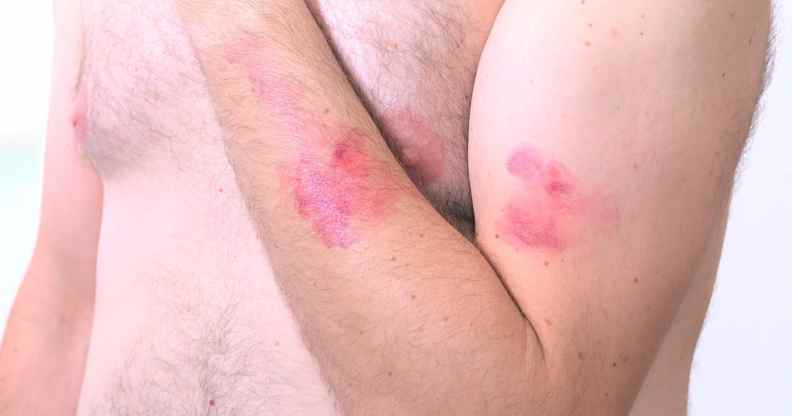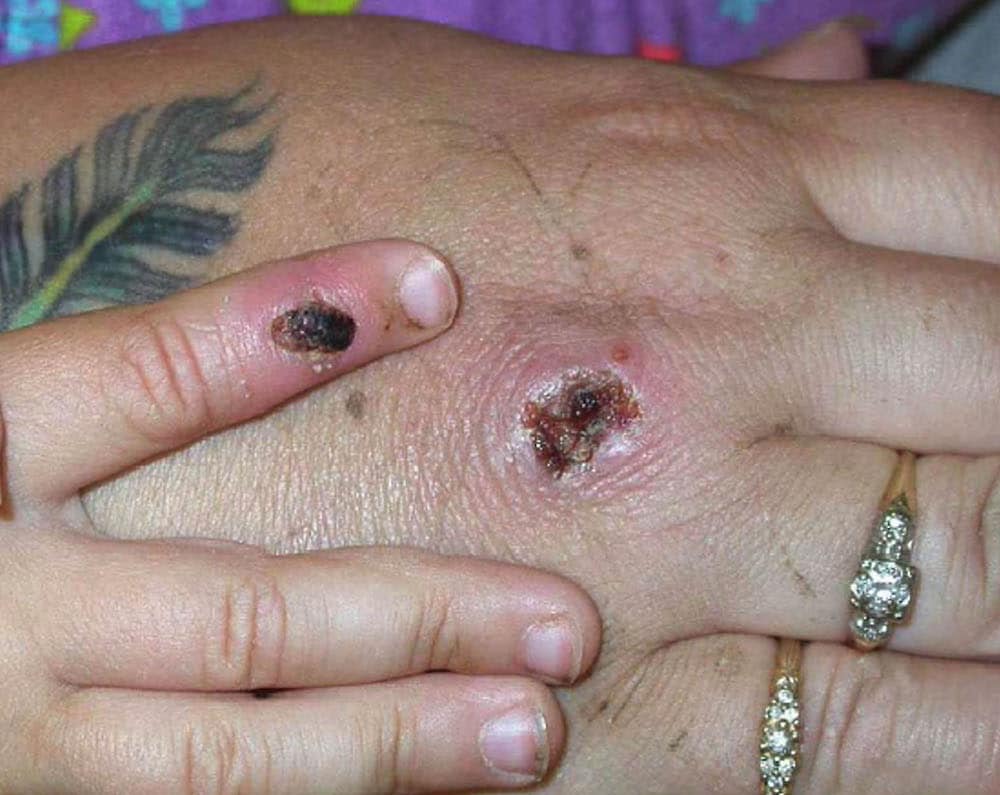Monkeypox could have been circulating undetected in the UK since 2018, WHO scientist says

The UK is among countries experiencing a monkeypox outbreak. (Getty)
A World Health Organization (WHO) expert has suggested that monkeypox may have been present in the UK for years.
Officials confirmed on Wednesday (25 May) that UK cases now stand at 78, a rise of 58 in just under a week.
Monkeypox has caused alarm in many Western countries. It has typically been a disease found in west and central Africa, with only eight previous cases ever reported in the UK, all since 2018 and related to travel to or from Nigeria, according to WHO.
While the first official case of the current outbreak was reported on 4 May, professor David Heyman, a WHO expert who chairs the infectious disease group, told The Guardian that the virus has possibly been circulating undetected in the UK since between 2018 and 2019.
“It could hypothetically be that the virus transmission amplified from this low level of transmission when by chance it entered the population that is at present amplifying transmission,” he said.

Monkeypox lesions. (Getty/ CDC)
Professor Heyman stressed that this theory was not yet conclusive and more research would be required.
A virologist from the University of Leuven in Belgium, Professor Marc Van Ranst, backed Heyman’s theory. He told The Guardian: “This may be a virus that’s been circulating undetected for quite a while.”
He added: “They all have a common ancestor and that common ancestor probably dates back to 2019, though it’s too early to date with any kind of accuracy.”
The UK Health Security Agency has confirmed that a large proportion of cases have been detected among gay, bisexual and men who sleep with men.
However, experts have been clear that monkeypox “is not a gay disease”, and have warned against stigmatising queer communities.
WHO has reiterated in statement that “monkeypox is not limited to men who have sex with men”.
Monkeypox is spread through close physical contact which can include kissing, oral sex, penetrative and even simply touching someone who has symptoms.
Symptoms include swollen lymph nodes, a rash, headaches, muscle aches and low energy.
The UK is contacting tracing cases, and those at risk are being advised to isolate for 21 days.
Those in close contact with a person with monkeypox symptoms can protect themselves by washing their hands, wearing a mask and avoiding skin to skin contact, WHO says.

